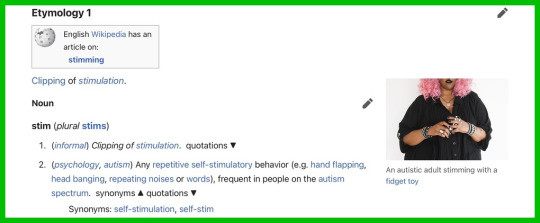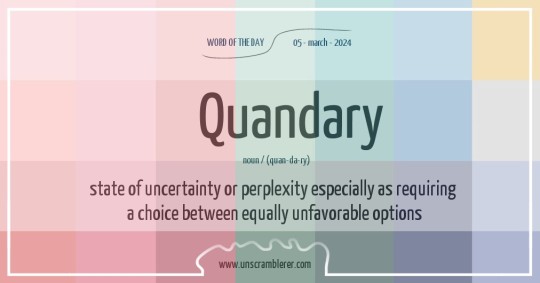#English Words
Text

-Majnuu
The above quote was from one of Qays ibn al-Mulawwah (Majnun’s) poetry that was recorded for Layla bint Mahdi (Layla) before his descent into madness // Story of Layla and Majnun (book) was written by a Persian poet "Nizami Ganjavi" who wrote this masterpiece based on a true story of a young man called Qays ibn al-Mulawwah (Majnun) in the 7th century when Arabs defeated Persia and Ctesiphon was destroyed and Persians built Iraq. // Originally the book was published in 1484 AD
#poetry#love#literature#longing#deep thoughts#aesthetic#fashion#laila#majnuu#laila majnu#nizar qabbani#urdu lines#urdupoetry#urdu shayari#urdu ghazal#urduposts#urduadab#deep words#wordstoliveby#english words#words to live by#words to remember#spilled words#positive words#my words
466 notes
·
View notes
Text

#english in madrid#english#english language#learning languages#learning english#english as a second language#english as a foreign language#english words#motivation#inspiration#positivity#positive thinking#learning styles
1K notes
·
View notes
Text
*This poll was submitted to us and we simply posted it so people could vote and discuss their opinions on the matter. If you’d like for us to ask the internet a question for you, feel free to drop the poll of your choice in our inbox and we’ll post them anonymously (for more info, please check our pinned post).
#debate#debating#english words#poll#polls#tumblr polls#tumblr poll#incognito polls#poll time#random polls#yes or no poll#yes or no#yes or no polls
82 notes
·
View notes
Text
22 notes
·
View notes
Text
#requested#poll blog#random polls#silly polls#stupid polls#tumblr polls#poll#polls#silly poll#pick one#this or that#autumn#fall#i love fall#i love autumn#fall colors#autumn leaves#i miss autumn#i miss fall#spooky season#seasons#seasonal#words#word poll#daily poll#daily polls#language poll#vocabulary#vocab#english words
21 notes
·
View notes
Text
instagram
Now I get it (not) 💁♂️
#linguistics#linguisthumor#lingblr#linguist humor#langblr#english words#english#itsbobbyfinn#Instagram
6 notes
·
View notes
Text
Silence,please,sing to me
In ways I cannot see
In ways I cannot hear,
In ways I cannot feel,
Incapcitated, in ways I cannot explain
with a broken heart, with a broken soul
Unable to see my goal,
Disdain, pain, and remorses
Silence, you are my calmness
on this road of loneliness.
Silnce, embraces me,
Coldness,warmly,
As if I am your child,
your only kind.
@un-suflet-anonim
#un suflet anonim#mine#my poetry#tumblr post#tumblr blog#poetry on tumblr#poetry blog#poetry writing#poetry#just words#tumblr writing#blog writing#feels#emotions#poetry tumblr#pieces of thoughts#pieces of feelings#my own post on tumblr#my own poetry#english poetry#english text#english words
4 notes
·
View notes
Text
... what the ██ is "stimming"? The act of applying a stim-pack?
Wiktionary, help me out here.

...

What the absolute ██?! Yo, people need to stop ███ violating the English language like this. There's already a perfectly fine word for this kind of thing: "fidgeting".
Why the hell do people keep doing this ██? Seriously…
#screen captures#Wiktionary#words#English words#stim#stimming#what the hell#no#stop destroying language
11 notes
·
View notes
Text

Todays word of the day is: Quandary
Origin of the word is traced back to the 16th century. It stems from the Latin word "quandō," which means "when".
#wordoftheday#wordle#scrabble#scrabble words#vocabulary#dictionary#unique words#quandary#english words#Unscramblerer
7 notes
·
View notes
Text
BOOST VOCABULARY NOW
Download Vocabulary Expert App


#vocabulary#word of the day#dictionary#education#learn english#vocab list#words#learnlanguages#learnsomethingneweveryday#learning#learning apps#english learning#english words
4 notes
·
View notes
Text
Women's roles and strengths in Jane Austen's novels





The first excerpt is from Sense and Sensibility (1811), spoken by the character Marianne Dashwood. // The second excerpt is also from Sense and Sensibility (1811), spoken by the character Marianne Dashwood. // The third excerpt highlights themes in Persuasion (1817), celebrating the inner strength and perseverance of women. // The fourth excerpt reflects themes from Emma (1815), emphasizing the value of personal integrity over societal achievements. // The final excerpt is from Northanger Abbey (1817), highlights perspective on evaluating character and actions over mere emotions.
#jane austen#sense and sensibility#persuasion#love#longing#literature#moon poem#poetry#novels#jane austen novels#love poem#poems on tumblr#original poem#poems and poetry#syliva plath#franz kafka#english translation#english words#movie quotes#book quotes#inspirational quotes#quotes#women strength#beautiful women#women#positive quotes#life quotes#motivational quotes#romantic quotes#illustration
16 notes
·
View notes
Text

#english in madrid#english#english language#learning languages#learning english#english as a second language#english as a foreign language#english words#motivation#inspiration#positivity#positive attitude
130 notes
·
View notes
Text
*This poll was submitted to us and we simply posted it so people could vote and discuss their opinions on the matter. If you’d like for us to ask the internet a question for you, feel free to drop the poll of your choice in our inbox and we’ll post them anonymously (for more info, please check our pinned post).
#poll#polls#yes or no#english words#writer#writers#writing#writeblr#artist#artists#fanfic#fanfiction#fanart#fan art#ao3#archive of our own#art#artblr#digital art#painting#paintings#illustration#illustraions#incognito polls#poll time#random polls#tumblr poll#tumblr polls#yes or no poll#yes or no polls
56 notes
·
View notes
Text
aspersion
Part of speech: Noun
Pronunciation: uh-SPER-zhun or AH-sper-zhun (ah as in apple)
Meaning 1: a false or misleading charge meant to harm someone's reputation. Most often used in the phrase "casting aspersions," meaning to make (in speech or writing) false, misleading, or besmirching charges meant to harm someone's reputation.
In a sentence: Melissa believed that Roger had unjustly cast aspersions on the quality of her research. Or: The ignorance in that aspersion is beyond comprehension.
Meaning 2: a sprinkling with water, especially in religious ceremonies
In a sentence: "No sweet aspersion shall the heavens let fall / To make this contract grow." --William Shakespeare's The Tempest
History: aspersion comes from the Latin word aspersus, a form of the verb aspergere, which means "to sprinkle" or "to scatter." When aspersion first appeared in English in the 16th century, it referred to the type of sprinklings (for instance, of holy water) that occur in religious ceremonies. But English speakers noted that splatters can soil and stain, and it wasn’t long before aspersion was also being used for reports that stain or tarnish a reputation.
From Merriam Webster's Word of the Day July 29, 2024
#words#word of the day#definition#definitions#english vocab#build your vocabulary#vocabulary#vocab#learn english#english language#english words#language learning#language lessons#language stuff#english langblr#langblr
3 notes
·
View notes
Text
sad clown was such a good summation of his character
#'je suis marrant' screaaaaammmm#im actually enjoying their scenes maybe even more in french but that might just be bc theyre Really Good Scenes and i havent seen them#in a while#and in french i always realise what theyre saying somehow more than in english#like the gallery scene in spyfall?? like what the fuckkk#not always thats a lie. sometimes i dont know what theyre saying#but like 'je vous demande pardon' vs 'im sorry' idk like i said ive just heard fewer french words in general theyre still all sharper than#english words#probably why i write the way i do im just trying to find english words that still feel visceral#but anyway je suis marrant hfkjghjgh babeeeee#idk what that third line is in english bc i dont feel like i remember that line from the english version#feel like it must be changed a little bit one sec im checking#'different type of fun. but fun' fdhgkjghjg baaaabeeeeeee#man their scenes are so GOOD#i want a whole episode of just yaz and the master#if there was a way to make that plausible in a between revolution and flux story i'd write it there but i dont think it works
3 notes
·
View notes
